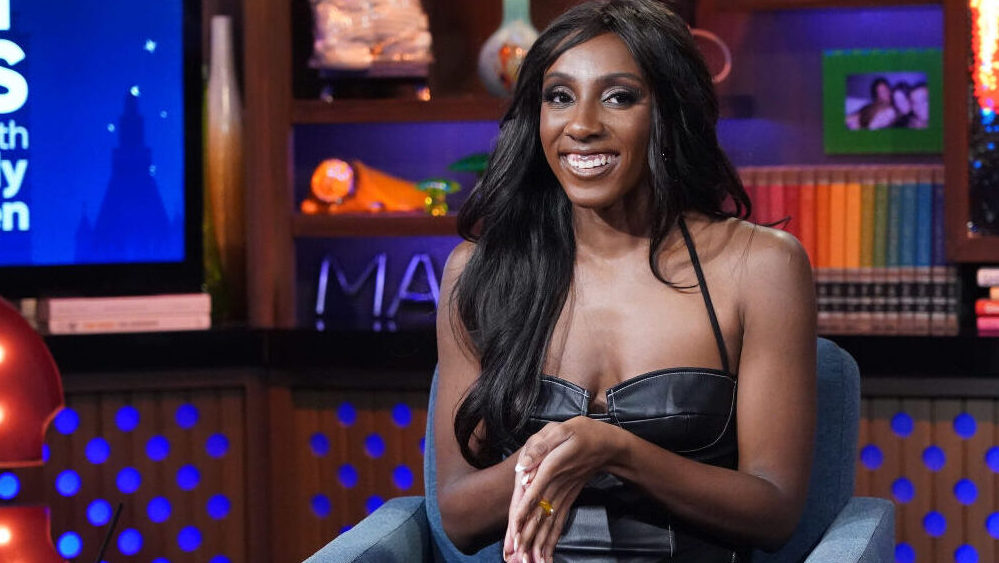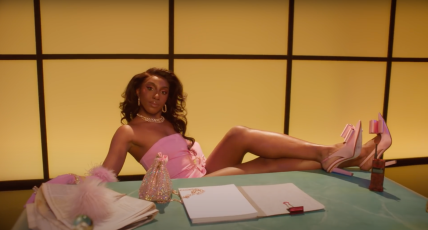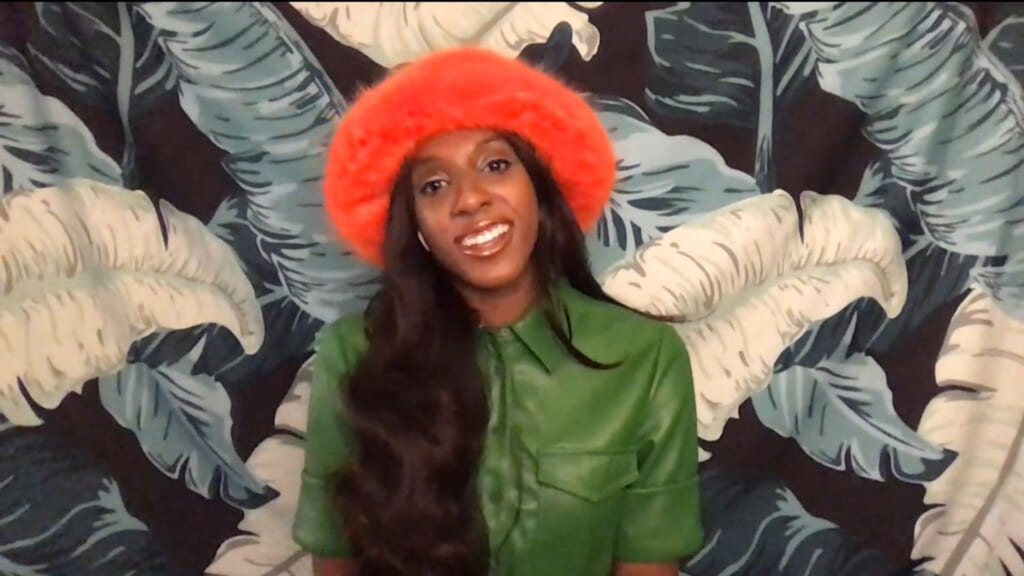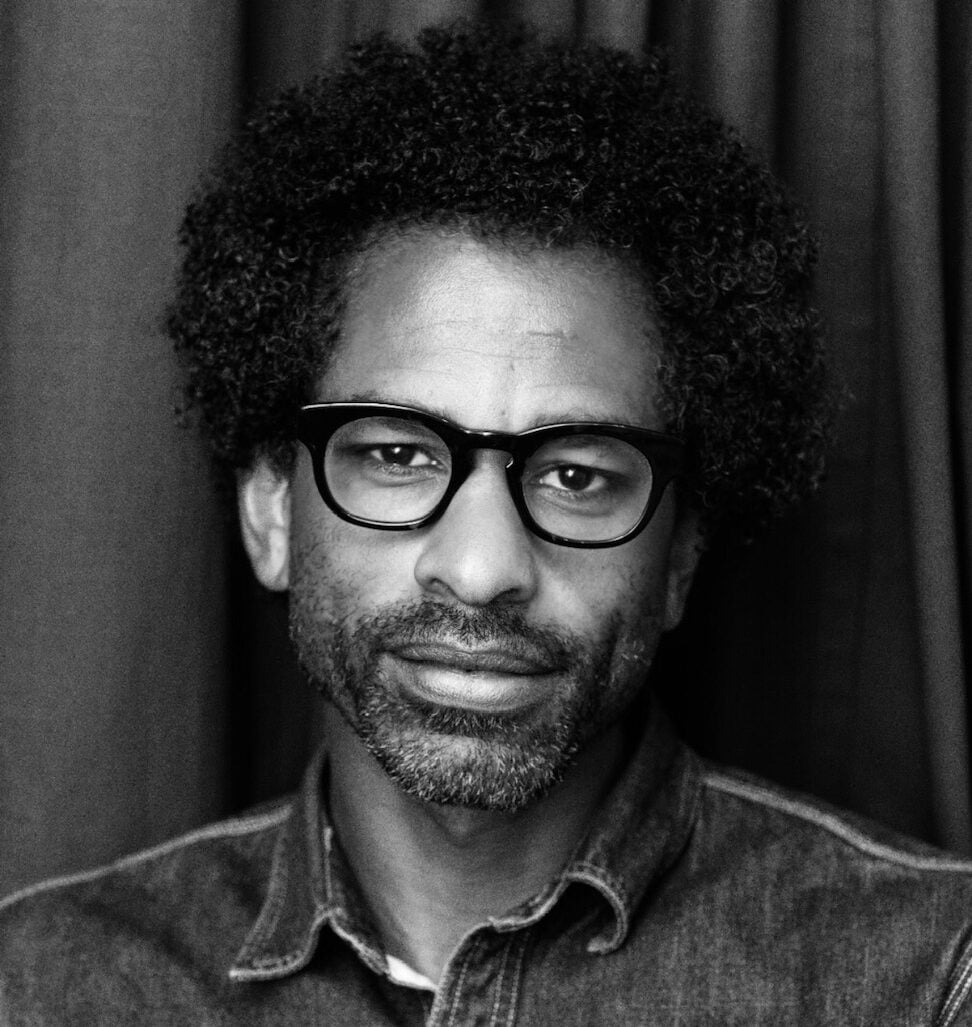‘Ziwe’ on Showtime is one of the most important shows on television
REVIEW: The comedy sketch show constantly puts whiteness on trial, and viewers get the feeling that it's always going to get convicted.

The most important show on TV right now is Ziwe on Showtime because nothing is more unapologetically Black, nothing is a sharper assault on whiteness and white centrism, and nothing is a more comprehensive attack on the colonizer/colonized mind. And the show is hilarious. I binged the whole first season in two days and was laughing so hard I was in tears most of the time.
Ziwe is a comedy show with a political mission and a chip on its shoulder—imagine the child of Chappelle’s Show and Angela Davis and Malcolm X combined with a millennial attitude and a Black studies degree. The eponymous host interviews semi-famous white people and tries to make them uncomfortable by pressing them on race.
She asks questions like, “How many Black friends do you have?” She says, “What’s a bigger problem, sidewalk slow-walkers or racism?” She holds up a picture of Black kids and says, “How would you save them?” Of course, whatever answer these white people give is wrong. There are no right answers. They could never be ally enough.
On Ziwe you get the feeling that whiteness is constantly on trial and it’s always going to get convicted. In one show she urged an actor to read Oprah Winfrey’s famous monologue from The Color Purple. He was uncomfortable and tried to say no but she pushed him as if refusing to read it would be racist. Then, after he read it, she said he had prevented her, Ziwe, from reading it, thus taking a job away from a Black woman. So he was damned either way—just like Black people in America. I loved it.


Showtime renews ‘Ziwe’ for second season
Ziwe talks down to white people kind of like the way Black people do when white people aren’t around, and it’s thrilling to see her smush that attitude in their faces. In that same interview I just referenced, she asked the actor (some white man I had never heard of) to cast a fictional movie about abolition—who should play Frederick Douglass, Sojourner Truth, Madame C.J. Walker, Barack Obama, etc. She gave the white actor headshots of several white actors and one of Ziwe herself.
He immediately knew he was in a terrible position. When he suggested Ziwe should play both Frederick Douglass and Sojourner Truth, as if that might appropriately appease the queen, she said, “Oh, so you want the Black woman to do all the work?” He was paralyzed with fear and suggested Emma Thompson should play a famous Black abolitionist.
Ziwe looked at him disdainfully and said, “why did you think you were stuck with the white actors you were given? Why didn’t you look beyond that group to Black actors?” This, of course, sent her guest into a further panic—oh my God, have I done something racist? The Kafkaesque nature of being Black in America and never being good enough for white people is constantly being grafted onto Ziwe’s guests, and I am so here for it. Usually, her white guests are nervous throughout their appearance as if they feel like she’s leading them to say something that will get them canceled.
Ziwe revels in their discomfort. I love watching her make white people squirm; I love watching her be so deeply Blackcentric that she demands white people answer for themselves and their brethren. She sometimes does the same to Black guests—she demands Lil Rel immediately phone a Black woman and if she doesn’t pick up then that somehow proves he’s not an ally. (She does.) Of course, this isn’t the same as when she attacks white people, which is the bulk of the show.

Ziwe also includes hilarious sketches, fake ads and songs where Ziwe satirically and subversively makes fun of white people and whiteness. Through it all, Ziwe sits there holding herself up like a queen who’s above her white guests. She’s sitting in judgment of them and her writers as well.
In a recurring segment, they’ll run a sketch that pushes way past the boundaries of good taste—for example, in one, Harriet Tubman seems to be endorsing a sports bra that helps her out when she’s running through the forests—and then Ziwe will have the writer sit down with her and she’ll dress down the writer for creating something so racist to which the writer will haplessly reply, “But Ziwe, you told me to write that.” She never cares about that but she does offer to let them blur out their face.
A critical part of the whole circus is Ziwe’s self-presentation: a comically exaggerated blend of arrogance, disdain, and extreme egotism. And watching this Black woman be so deeply self-confident and constantly slaying white people to their face is so liberating. Sometimes I think we approach white people with a bit of an infantilizing posture, like don’t put it in their faces that they don’t know Black history or Black culture; it’s wack, but hey, they’re just white folks. What do you expect?
But Ziwe will have none of that—she does a whole game show where she shows white people pictures of Shirley Chisholm and Colin Powell and asks them to identify them and freaks out when they fail because she assumes that white people should know Black history just as well as she does, and she’s horrified and offended when they don’t—which I love.
Of course, we should demand that white people know our history—it’s American history. We should tell them to their faces they aren’t doing enough—it’s real. Watching Ziwe makes me feel empowered as a Black person—watching this Black woman adopt a regal pose and verbally slaughter white people means Ziwe is more than just a comedian; she’s giving me life. Her work is far more than just entertainment; it’s a sort of spiritual activism. I love her, I stan her, I implore you to watch her and soak in the deeper meanings of who she is onstage. She’s amazing.

Touré is the host of the podcast “Toure Show” and the podcast docuseries “Who Was Prince?” He is also the author of seven books
Have you subscribed to theGrio podcasts “Dear Culture” or “Acting Up?” Download our newest episodes now!
TheGrio is now on Apple TV, Amazon Fire and Roku. Download theGrio.com today!
